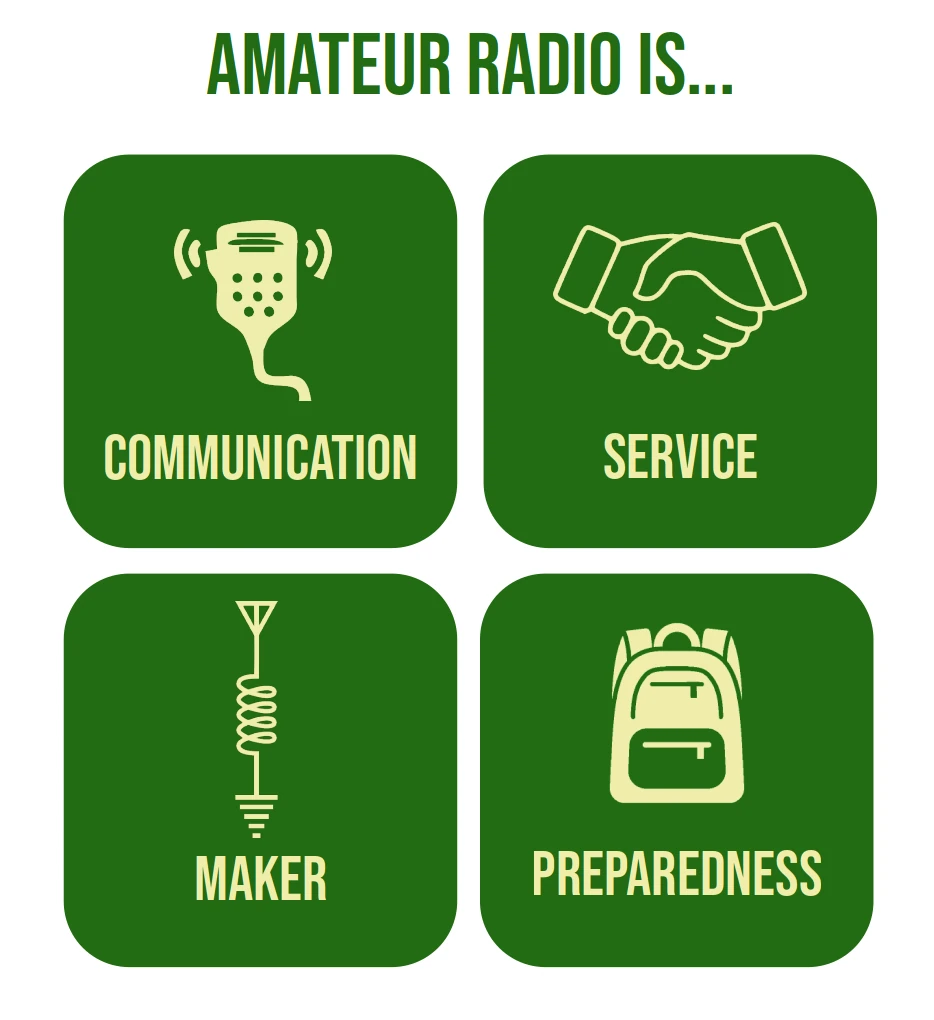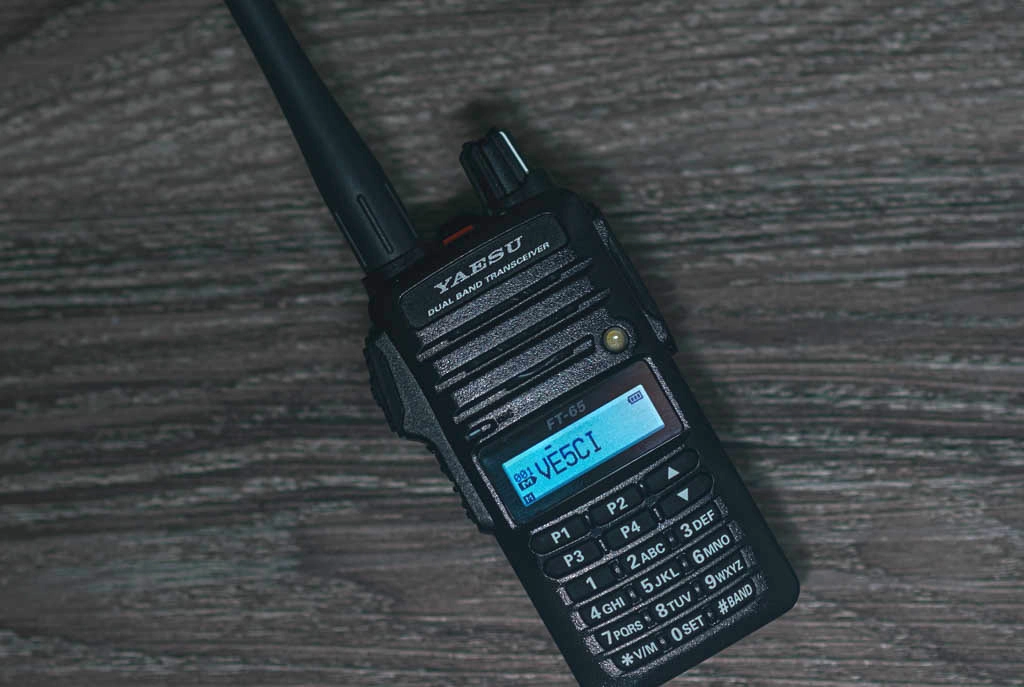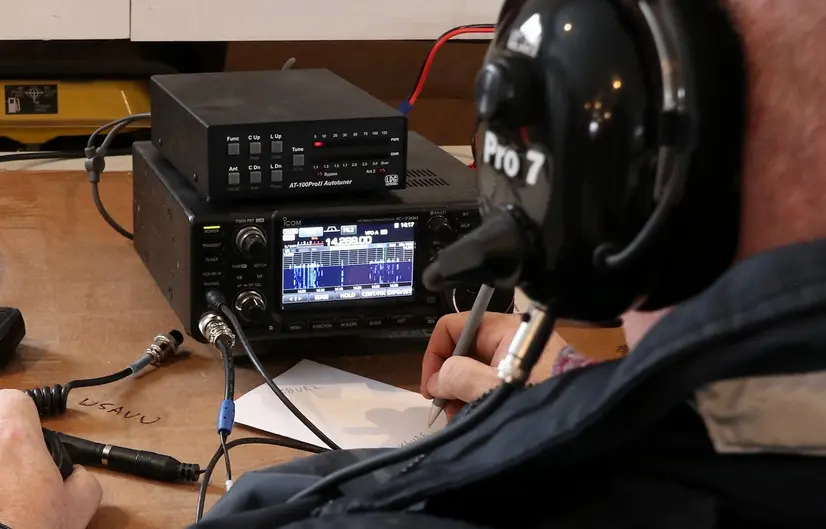What is Amateur Radio?

Amateur Radio is a multifaceted hobby! Long before smart phones and WIFI, amateur radio existed as the very first "Social Media" Communication platform. Whether it be at a City, Provincial, National or World-Wide scale, there are millions of licensed ham radio operators around the world and over 70,000 in Canada.
Today, our world has become digital and almost completely reliant on the internet. But if tomorrow the internet and smart phones failed, how would people communicate and exchange information?
Amateur Radio exists as a Service to the community in such a situation, and helps people establish a Preparedness perspective. And, Amateur Radio embraces the Maker mindset, building and tinkering with interesting projects!

Why is it called "Ham" Radio?
The exact reason why Amateur Radio is called "ham radio" is a hotly debated topic. Commonly it is believed that in 1909, less-than-professional-level radio operators were referred to as hams - a derogatory term used by professional and commercial radio operators to caricature those with lesser operating skills. Amateur Radio operators embraced the term and used it to describe the hobby.
Who are Ham Radio Operators?
Ham radio is appealing to people from a variety of ages and backgrounds. From plumbers to IT engineers, dental hygienist to book keepers, there are hams from all walks of life. This is one of the things that makes the ham radio community so interesting! Communicators, tinkerers, builders the sky is the limit for playing with radio.

How Does Ham Radio Benefit the Community?
Amateur radio is a fun hobby in and of itself, but it also plays a vital part in emergency communications during times of calamity or disaster when traditional forms of communication may be inaccessible. Ham radio operators have a long history of assisting Law Enforcement and Emergency Services using their skills and equipment to provide critical communication links between emergency responders and essential services. Radio Amateurs can relay the status of roads, bridges and other key infrastructure as well as potential hazards that first responders need to know about. These communications are potentially life-saving and critical to coordinating rescue and recovery efforts. All of these and more are contributions that hams make to the wellbeing and security of the community they serve.
Do I Need a License?
Yes. Ham radio operators are licensed in Canada by Innovation, Science and Economic Development Canada. To become licensed, you must pass the Amateur Radio exam. The basic exam consists of 100 multiple choice questions and you need 70% to pass and 80% (honours) to get all the transmitting privileges. There are many resources and study guides available to help you pass and take part in the hobby. There is also an Advanced level exam and Morse Code is no longer a requirement. Our Moose Jaw Amateur Radio Club runs classes to help prepare people to write the exam. Feel free to contact us for more information and check out our Get Licensed Page.
